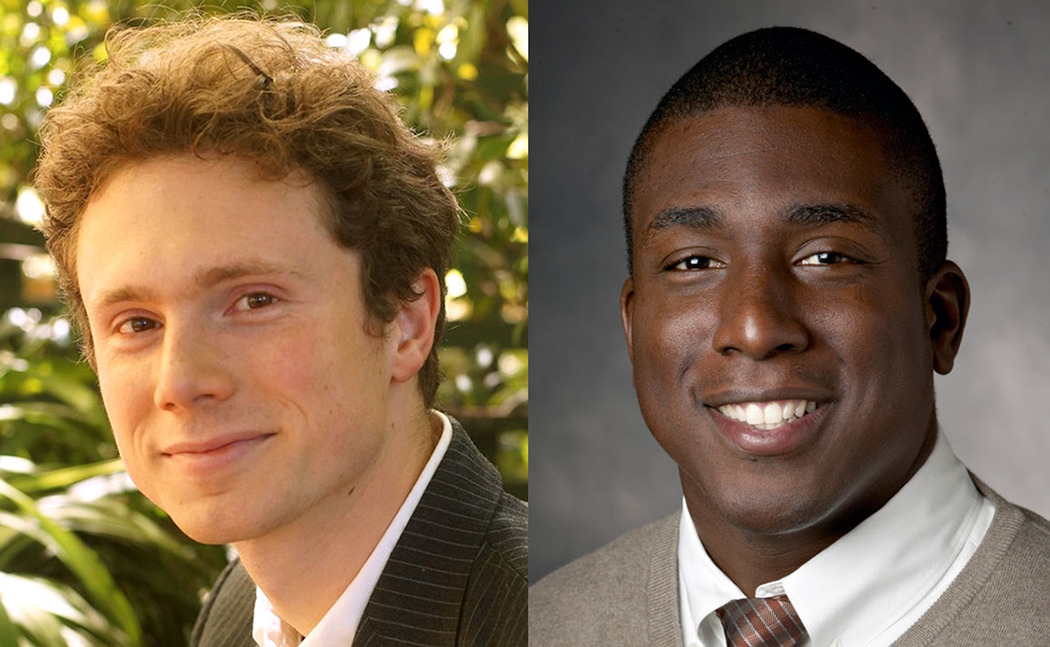
Sleeves rolled up, coffee by your keyboard, you hunker down and dig into that new online course. But then it comes: the inexorable pull to Facebook, email, news and sports links, and other virtual distractions. Soon it’s 15 minutes learning, 45 minutes surfing.
Daniel Greene is addressing the growing problem of online distraction and student procrastination through his doctoral research at the Stanford Graduate School of Education. With co-researcher Richard Patterson, a behavioral economics student at Cornell University, Greene is testing out downloadable software tools that can remind students when they are visiting distracting websites, help them to set daily productivity goals and prompt them to temporarily block diversions when they are completing online coursework.
Greene is one of two graduate students in the Stanford Learning Sciences and Technology Design (LSTD) Program this year whose work is being supported by the Amir Lopatin Fellowship. The fellowship grants recipients up to $7,500 to cover research-related expenses for exceptional projects involving technology and education.
Fellowship funds enable Greene to provide a modest amount in cash and gift certificates to compensate participants in his study. “This is allowing us to gather the largest participant pool possible –– about 1,500 students,” he said, noting that he draws them from an open access online course, “Statistics for Medical Professionals,” offered by Stanford associate professor Kristin Sainani.
Participants have been randomly assigned to receive one of several software tools. These include: a reminder tool that launches a popup every time a student has accumulated 30 minutes per day on websites that they have labeled as “distracting,” a commitment tool that gives students the ability to temporarily block distracting websites once they have exceeded a self-imposed portion of “distracting site time,” and a focus time tool that detects when students visit the course site and then offers them the opportunity to block distracting websites while they work.
“We’ll be able to see each detour into Facebook during a video lecture, each late-night Reddit visit, and each assignment interrupted by computer games, and we’ll be able to relate these behaviors to survey responses and learning outcomes,” said Greene. The project is among the first large-scale experimental studies of student self-control in massive open online courses, or “MOOCs,” he added.
The other Lopatin Fellow this year, Kareem Edouard, is helping middle school students in Haiti engage in science inquiry practices by producing their own short films related to earth science on video-enabled tablets. After creating their films around the school campus and in guided excursions, students will upload them on a special platform and will be led to ask, investigate and answer related science-based questions.
For example, a module on soil erosion, a problem plaguing the country since French colonial times, will involve students learning about the phenomenon and filming areas where such erosion is taking place. They will then be guided to pose and answer questions regarding the causes and consequences of the situation, as well as come up with potential solutions.
Edouard will oversee follow-up in-person interviews with teachers and students, as well as having them fill out a survey, to gauge the impact of the video tablet on critical thinking and the science inquiry process. The fellowship is helping Edouard pay for the tablets, translation of the English materials into Haitian Creole and French, and honoraria for Haitian teachers and researchers, as well as his travel to and from Port-au-Prince.
Edouard, a second generation Haitian American, has long felt the pull back to his parents’ country. “The education system in Haiti has been hit with difficult times primarily due to the 2010 earthquake,” he said. “However, even prior to the catastrophic event, the foundation of Haiti's public education system was structured around rote memorization and a lack of funding. My goal is to collaborate with the Haitian Diaspora to increase public school funding and support to Haitian educators in developing curricula and new pedagogical practices so they may help students develop critical inquiry skills to flourish in future STEM fields.”
Since its creation in 2008, the Lopatin Fellowship has supported ten students at the Stanford Graduate School of Education, including Greene and Edouard. Earlier fellows include Amber Levinson, Ugochi Acholonu, Shuchi Grover, Maryanna Rogers, Bertrand Schneider, Marcelo Worsley, Michelle Friend and Brian Perone.
“These two new projects both reflect the spirit and aim of the Lopatin Fellowships, which is to support research demonstrating how technology can improve learning and increase education’s reach,” said Shelley Goldman, professor of education.
The Lopatin endowment fund is supported by the generosity of the family and friends of Amir Lopatin (1976-2004), a former doctoral student in the LSTD Program. On March 25, 2004, Lopatin lost his life in an automobile accident. “This year marks the tenth anniversary of his death,” noted Goldman. “It’s gratifying to see how the different projects are a testament to his power to ask difficult questions and inspire others to help answer them. They speak directly to his concerns and goals.”
Greene is scheduled to receive his PhD in 2016, and Edouard in 2017.
Marguerite Rigoglioso writes frequently about Stanford Graduate School of Education.
Subscribe to our monthly newsletter.